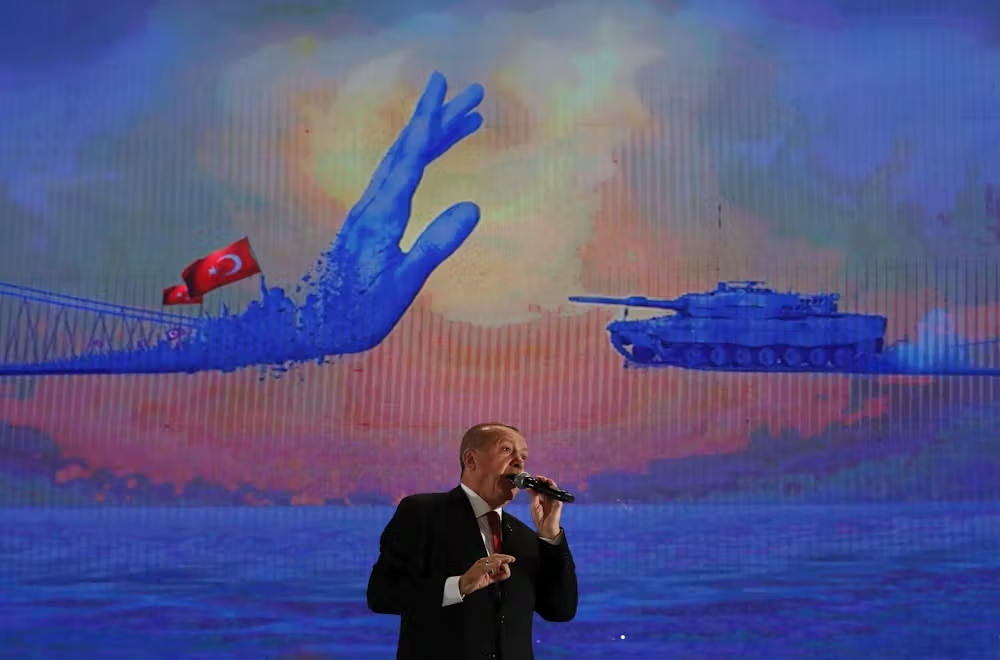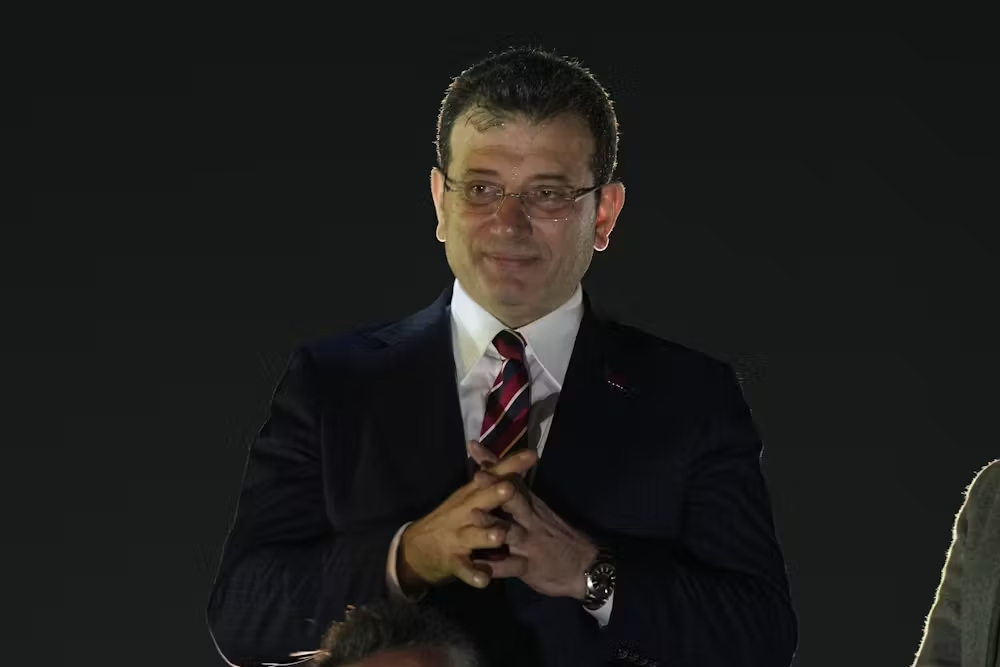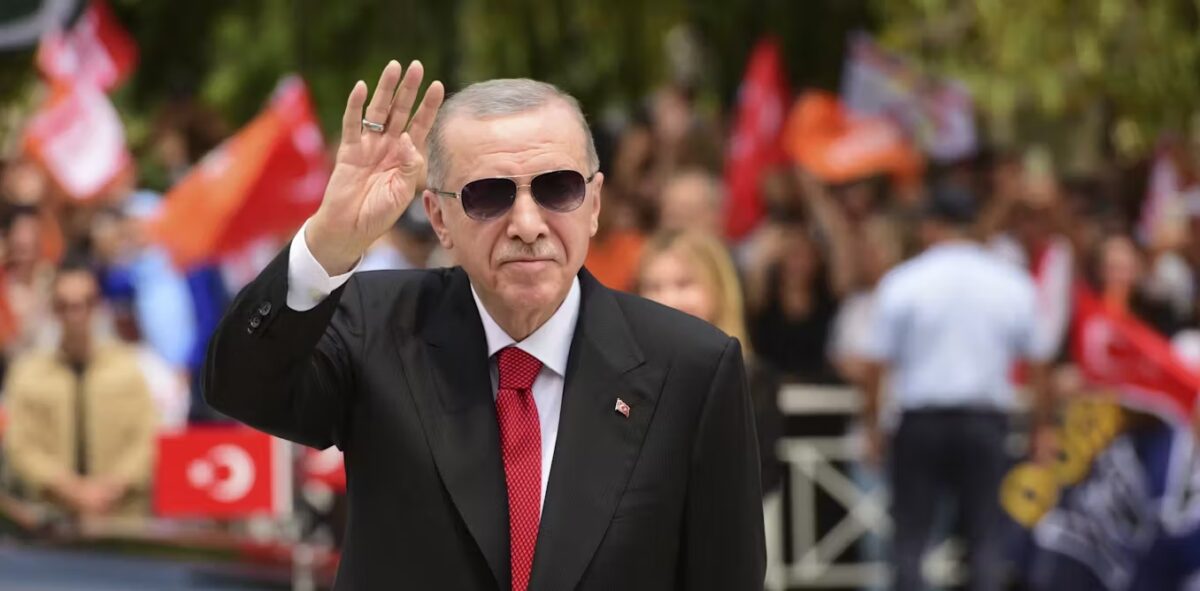Written by Yasar Bukan
Turkish President Recep Tayyip Erdoğan recently indicated that he will retire from politics at the end of his current term. (AP Photo/Nedim Enginsoy)
Turkey’s President Recep Tayyip Erdoğan recently gave the clearest indication yet about his political future, stating, “With the authority that the law confers on me, this election is my last election.” Erdoğan has been in power since 2003, first serving as prime minister before being elected president in 2014.
The statement, made at a meeting for the Turkish Youth Foundation, was not an official announcement by any means. Rather, it was what appeared to be a frank statement communicated to a young party audience. Mincing words is not usually Erdoğan’s style; he can be quite direct and candid, which has been one of the key appeals of his charismatic personality.
Understandably, response to the speech, both within and outside of Turkey, has so far been somewhat muted. Erdoğan still has four years left to serve as the country’s president.
The Republican People’s Party, the main opposition party, has argued Erdoğan’s statement was nothing more than a strategy to garner support in the upcoming local elections for his Justice and Development Party’s (AKP) candidates. That certainly may have played a role; as a seasoned politician Erdoğan is known for his timing.
A lot can change between now and 2028 when Erdoğan’s term ends. The Turkish constitution states that a person can only be president for two terms at the most. However, with enough pressure from his followers and political support from the Turkish Parliament to introduce the necessary constitutional changes, Erdoğan may seek another term. At the same time, it appears he is growing tired of political life and is waiting for the right moment to step aside. And Friday’s statement is an indication of that.
Erdoğan’s legacy
It is perhaps too early to judge Erdoğan’s political legacy comprehensively. But his impact on the nation’s trajectory, its regional standing, social structures and government institutions has been undeniable.
Since the AKP came to power in 2002, Turkey has experienced its most politically stable era since it transitioned to the multi-party system in 1946. The country went through fundamental readjustments and transformations. The dominant secular class and the elite of all upper social strata were largely displaced and replaced by religious conservatives, and to a limited extent, at least in the first decade of AKP rule, by the progressive camp.
One of the most significant structural changes has been the subjection of the military to civilian rule and oversight, an institution that had been for many years the key decision-maker in Turkish politics.
There was a brief power struggle with the Gülen movement who had initially played an important role in helping the AKP wrest power from the military establishment. The two sides had a falling out and Erdoğan accused the movement of being behind the failed coup in 2016.

In the economic sphere, Erdoğan’s success has not been consistent. From 2002 until the early 2010s, Turkey’s economy experienced unprecedented growth, fueled by increased foreign investment and large scale projects. The economic success of these years lifted millions into the middle class and led to higher living standards overall. Since the mid 2010s, however, inflation has skyrocketed, the currency’s value plunged, foreign capital inflow slowed and economic conditions deteriorated.
The country’s foreign policy over the last two decades mirrors its economic ups and downs. Erdoğan and his party expected the nation to be more involved in regional politics and to further improve relations with the West. It was successful in doing so in the first decade as relations with neighboring countries improved. But as Turkey’s foreign policy grew more assertive, the strategy faltered and the country found itself surrounded by more enemies and fewer friends.
In the first decade in power, the AKP introduced highly encouraging democratic initiatives supported by liberals and progressives. The country’s Kurdish population was one of the key beneficiaries. Albeit limited, the use of the Kurdish language in schools was decriminalized, and many restrictions that were placed on the Kurdish language, politics, and culture were, to some degree, loosened.
But these democratic policies came to a standstill and were partially reversed soon after AKP’s poor showing in the 2015 elections. To regain lost votes, Erdoğan adopted a more nationalistic strategy, which resulted in the AKP winning a majority government later that year. This unexpected shift led to the growing rapprochement and eventual coalition alliance with the far-right Nationalist Movement Party.
Erdoğan’s authoritarian tendencies are no secret. The 2017 constitutional referendum gave him sweeping powers over the judiciary and parliament. He commands considerable influence over the media, the business world, the judiciary, the legislative branch, the economy, on foreign policy and so on.
One of the glaring consequences of these tendencies under Erdoğan’s leadership has been the suppression of political dissent, particularly the imprisonment of members of the Kurdish political party.
While this kind of top-down projection of power has unfortunately become somewhat of a norm for democracies around the world today, it was more of an anomaly 10 years ago.

A Post-Erdoğan era?
So far, there appears to be no heir to Erdoğan on the horizon. His son-in-law, Berat Albayrak, once touted as a clear frontrunner in the race to succeed him, has since left active politics. Erdoğan’s influential former interior minister Suleyman Soylu has also been sidelined. Aside from these once presidential hopefuls there is no emerging leader from AKP’s ranks.
Outside the AKP, the current Istanbul mayor Ekrem İmamoğlu is often portrayed as someone who could potentially be the next president, but his success will depend on the alliances his party is able to form before 2028.
Erdoğan’s recent comments seem to indicate his intentions about his political future. But they are just that, intentions. They can change under certain conditions. What is clear though, he is a far more divisive figure today than he was 20 years ago.
Is Turkey ready for a post-Erdoğan era? Much depends on who and what comes after.
If a new president continues much of the similar policies and has a non-disruptive approach, then a peaceful transition is plausible. But Erdoğan’s party failing to concede a loss, or his voter base failing to recognize the results, may lead to a turbulent transition.

